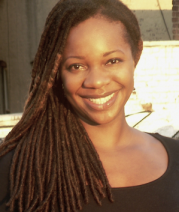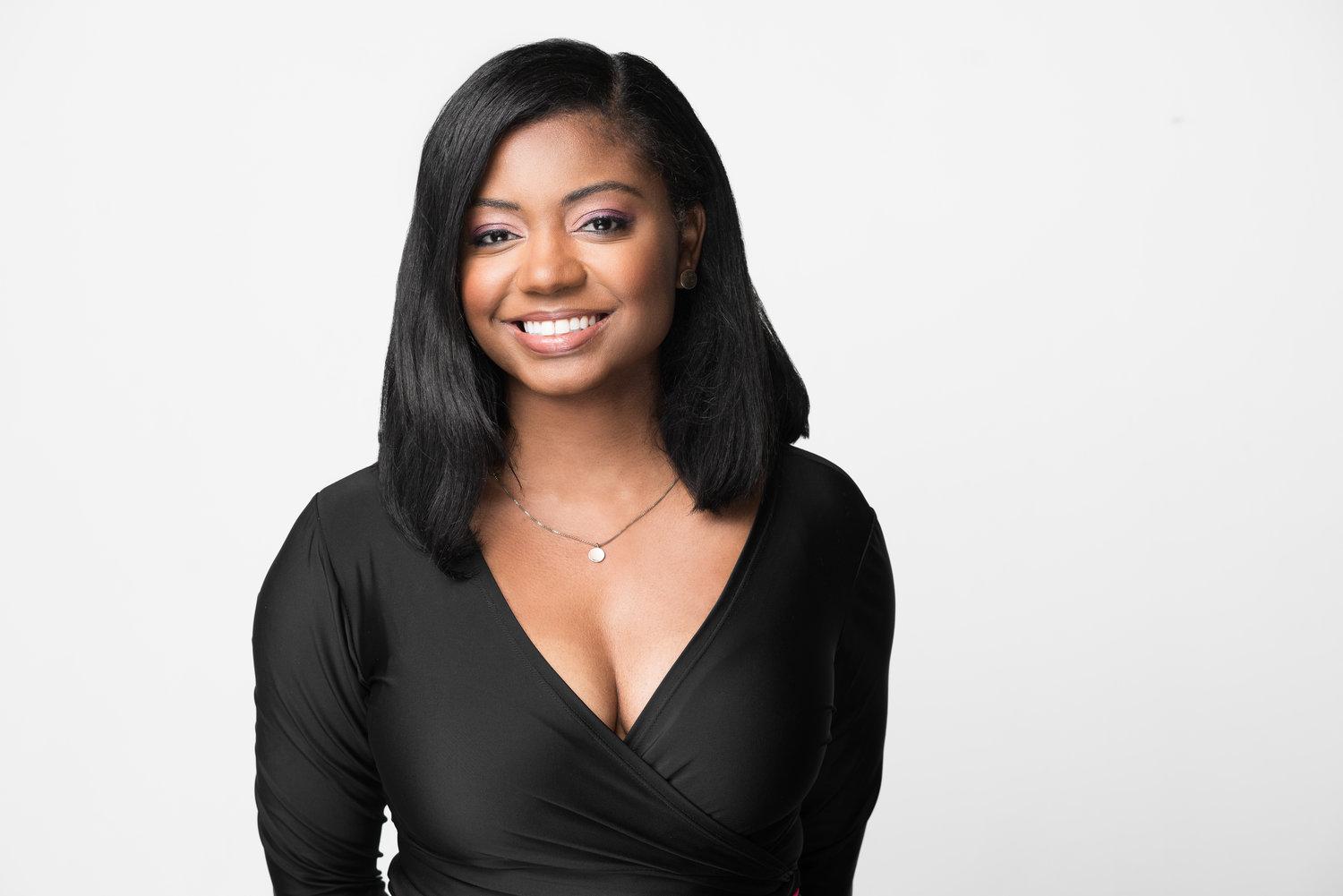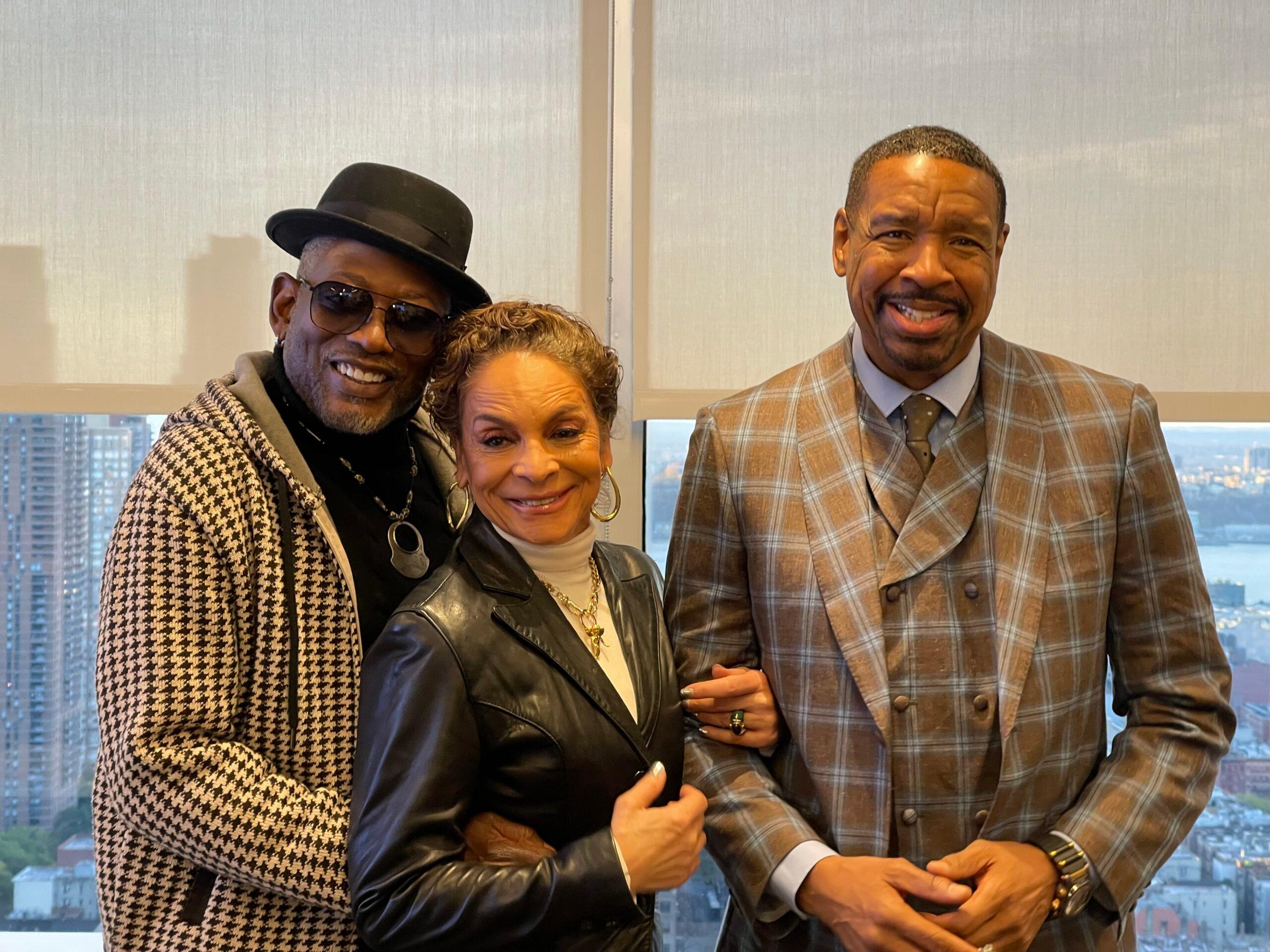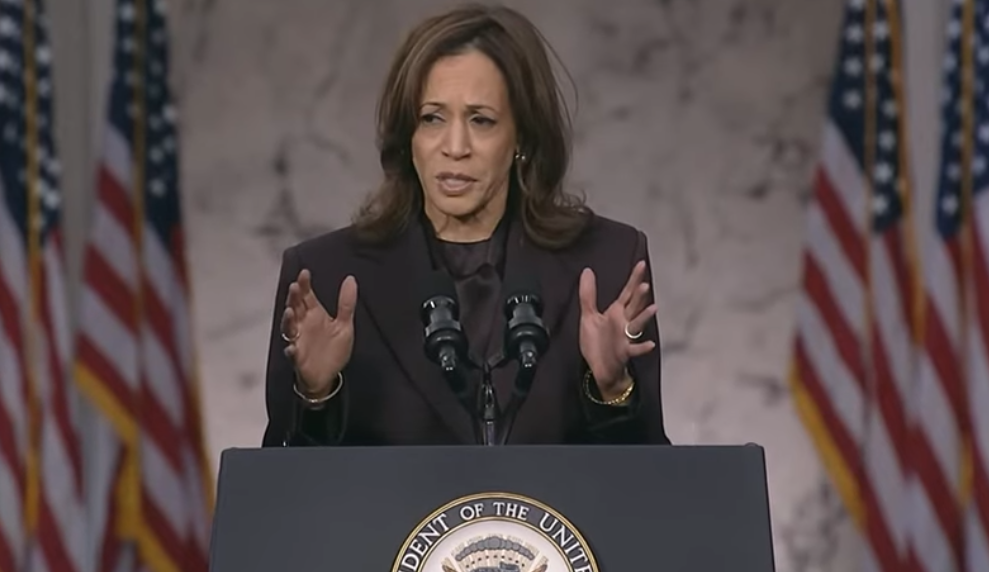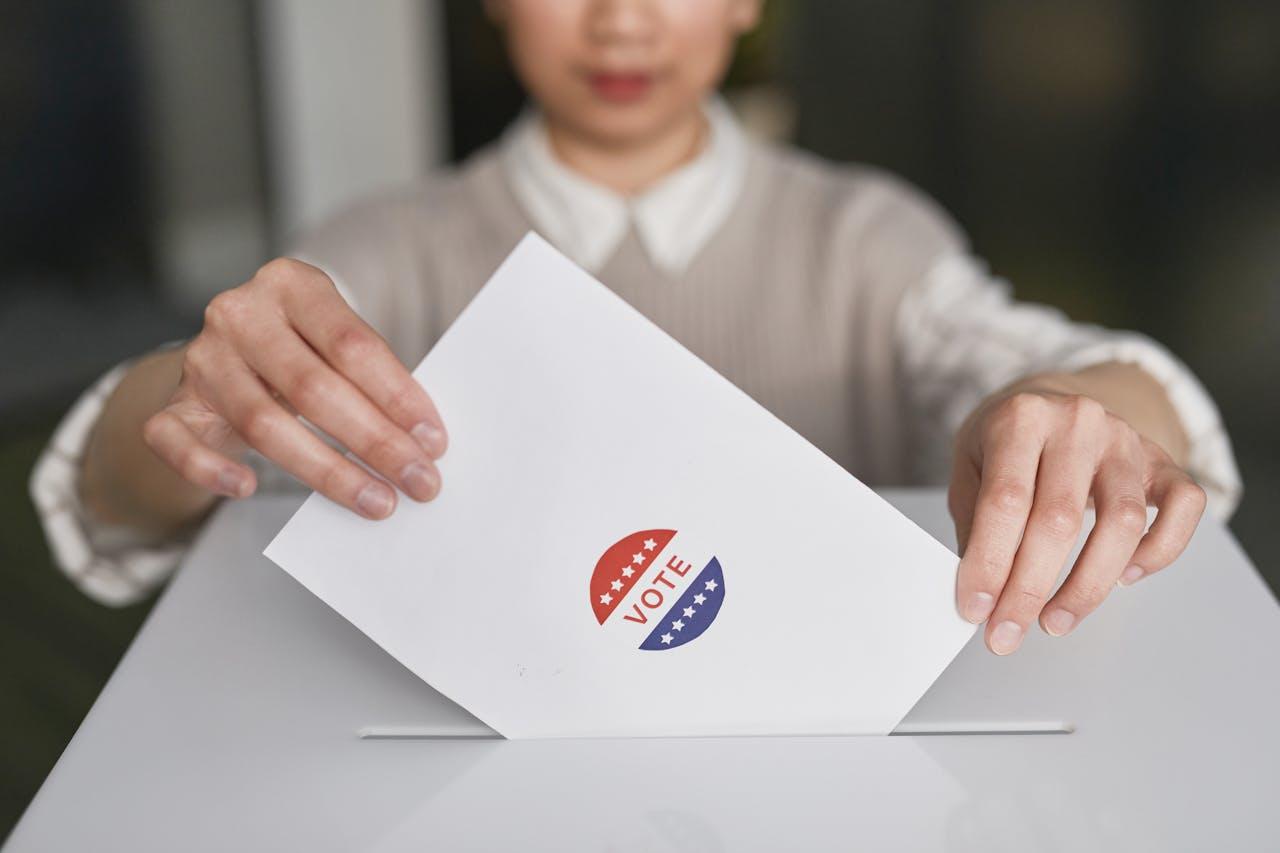When we first spoke with Gwenna Lucas, she held the title of Global Head of Visual Merchandising at Cole Haan. The path to her role there, she explains, was a fortuitous one.
“Everytime I tell the story, or tell a younger person I keep trying to reiterate that it was divine navigation because if you were to ask me, ‘where do you see yourself in 10 or 12 years?’ I would have never ever ever ever been able to come up with a story like this.”
Her career is set upon a foundation of right place, right time moments, fueled by her will and strength to follow her gut and rely on her faith. When she started college, she went in as a pre-med student. Yet today, her resume is packed with over twelve years of experience in the field of merchandising, branding and fashion. Even since our recent conversation, she’s moved on from Cole Haan and is now the managing director for a new boutique consulting firm: The Rainy Group.
Read on to learn all about Gwenna’s fortuitous path from working as an unpaid intern while waitressing at a Japanese restaurant to launching flagship stores in Japan and China, for brands like Kate Spade.
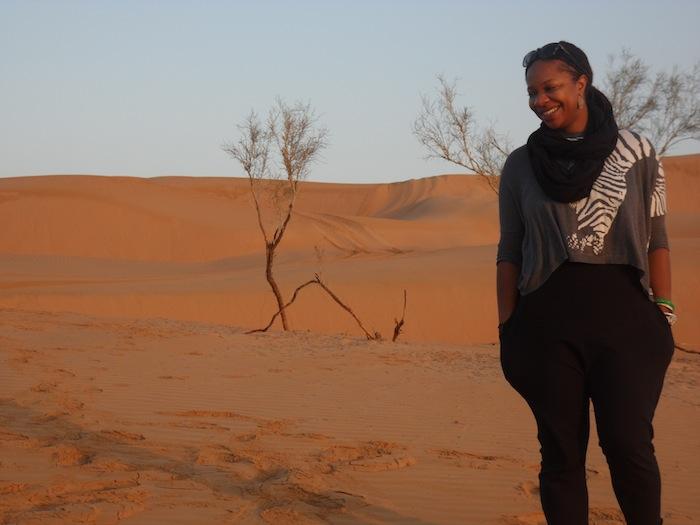
Her Agenda: What is your agenda? What do you do?
Gwenna Lucas: My professional career has been in and around visual merchandising developing and constructing and concepting the entire in store experience for consumers. So whenever you walk into the store, the window displays that you see, that’s visual merchandising. Visual merchandisers also collaborate with buyers and merchants to make sure that the product placement is where it needs to be to maximize sales potential. That’s what I do in a nutshell. It’s a grind from intern to where I am today.
Her Agenda: What steps did you take in your career to get to the position you hold now?
Gwenna Lucas: It’s funny because I graduated with a degree in communications with a concentration in chemistry. I actually went in pre-med. But throughout college, I did costume design and I was art director for one of the campus theater groups. I graduated in 2001 right around September 11th. It was a really crazy time, especially for a new grad. I ended up taking a job in Chicago as an assistant manager for United Colors of Benetton. That was the first time I actually encountered what visual merchandising was. The corporate team came in and completely flipped the store and I was like what is this that they’re doing? It was sort of [always] in the back in my mind after seeing that.
I decided because it was September 11th and I didn’t want to go into medicine and didn’t know what to do, I decided to apply to go in as a candidate for the Marine Corp for intelligence.
It’s funny when I tell this story because I’m just like gosh, it was clearly God who directed my path. To make a long story short, a friend of mine was driving across country and I decided to come up to New York with him. When I got to New York, I was on the west side training with the marines. [When] I finished, I was completely sweaty, gross, but I always had my resumes on me at the time. So walking up 50th street I stopped at the corner at a red light, I looked left [and] there was the headquarters for Kenneth Cole Productions. So sweaty and all, I went and dropped my resume at the front desk, and said– if you have anything available let me know.
Her Agenda: Wait, you always walked around with your resume?
Gwenna: You know how when you are fresh out of school, you don’t know what’s going to happen. [So] you want to make sure you capitalize on every opportunity that comes your way, so you just have to always be prepared.
[Kenneth Cole Productions] called me the next day– and they were like ‘yes, we want you to come in for an interview for an internship for our visual merchandising department.’ [It] is so funny because I wasn’t targeting that department in particular. It was completely unpaid, all they paid for was my metrocard and my lunch.
HA: Wow, and at that point you were already a college graduate…taking an internship?
Gwenna: It was really interesting because of course towards the end of my internship, my savings were running out and I had to end up taking a job at a Japanese restaurant downstairs from my apartment where I was staying as a food delivery person. So it’s like– here I am with a Northwestern degree delivering Japanese food and working during the day.
After my internship I did freelance work for Macy’s Herald Square for the holidays and they ended up keeping me on longer. Then while I was at Macy’s, my former manager at Kenneth Cole left there and went to J Crew in the corporate office. He [said to me] ‘I want to create a position for you, come on board full time,’ and that was my first full time job out of college.
HA: What came next?
Gwenna: I worked there for almost three years, and then Liz Claiborne recruited me to work on a few of their smaller satellite brands in the merchandising department. Then Liz Claiborne acquired Kate Spade. So, I actually knew someone who worked at Kate Spade who I worked with at J Crew. Turns out they had a position available in [the visual merchandising] department and they pulled me over to Kate Spade.
While I was at Kate Spade, I learned a tremendous amount about how to navigate your position as an African American woman and how to open your mouth and ask for what you want and also how to be strategic in terms of planning out your career. So while I was there, I [went to] Tokyo to open one of our newest flagship stores because the brand was in rapid growth expansion and launching in international markets.
After I came back from Japan, I was like this is it, I only want to focus on International. I want to be part of the global expansion team. I only want to focus on international, I want to launch new markets, I want to travel etc.
So when I came back, I talked to a few people, a few VP’s and just asked them what their thoughts were in terms of me developing a transition plan to move from what I was currently doing at the time to what I wanted to do.
HA: How did you take the next step?
Gwenna: I have to be honest, the transition plan was so rudamary, so basic, it probably had grammatical errors. I didn’t know what I was doing but I put it out there anyway. Because I put it out there, and no one else put it out there they were like clearly she knows what she wants to do so lets give her the opportunity to do it. So for the last two and a half years, I was working on the expansion team for Kate Spade. We penetrated new markets in Japan [and] in China.
We opened up pop up shops in stores in London and Brazil. It was a great opportunity because it actually opened up my view of not only what visual merchandising was — but what the fashion industry was.
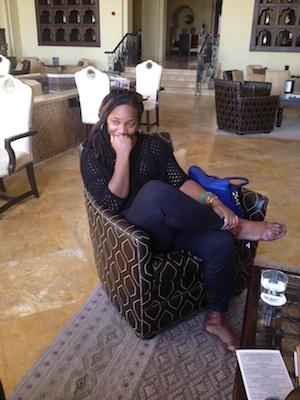
HA: You mentioned that you learned a lot of lessons at Kate Spade about navigating as an African American woman– can you think of specific examples, where you really learned how to navigate and hold your own?
Gwenna: Well first off let me start by saying I hope this statement is actually false. I have yet to see another African American woman on the corporate level of visual merchandising and I’ve been in the industry for about 12 years now. It’s actually disappointing because I think a lot of African American women don’t know that this facet of fashion actually exists. But on the flip side, when you’re navigating as an African American woman, you have to be cognizant of the fact that you can be very easily viewed as an aggressive black woman if you stand your ground. You can be viewed as emotional if you get overly passionate about things. You have to constantly remember to temper your reactions and temper your feedback, and temper a lot of different things about you, especially when you’re fairly new in the industry and making your way up.
One instance in particular where I finally understood that no matter how educated you are, how experienced you are how “articulate” you are some people will always view you as being a black woman. It was early on in my career when I was working on one of the satellite brands at Liz Claiborne and the VP of marketing made a comment about my skillset and where I was from. It was disappointing, I remember going to the bathroom, calling my mom and crying , but then I also remembered my mom always said, ‘don’t cast your pearls before swine.’ Those people who will always view you as what they want to see you as despite what you’ve done in life, you don’t need to prove them differently. It just is what it is and you just keep moving.
HA: A lot of your career story seems to be about being in the right place at the right time. What was your early “defining” career moment– that moment when it all clicked, and you knew you were on the right path?
Gwenna: It was the day that Kenneth Cole called me back for the internship–the unpaid internship. I knew this was what I wanted to do.
HA: How do you prioritize things? What is first on the agenda?
Gwenna: Its interesting. At the end of the day, no matter if you’re a creative or a finance person, or if you work in a corporation, you prioritize based on the return on investment, the ROI. If you’re working at a company, the bottom line is you’re there to make money, that’s the bottom line. So how I prioritize on projects is that– what’s the return on investment? Is it a quick return on investment or is it something that can wait?
Despite the hierarchy of titles, it depends on what’s the biggest return on investment. If the CEO says ‘Gwenna we are thinking of changing our strategy with one of our categories, can you come up with some different fixtures that we can use to support the initiatives?’ Then I have my director of merchandising come over and say ‘Gwenna, one of our categories isn’t performing well, we need you to get with the team to come up with a strategy to increase profitability.’
First, you think of return on investment, in terms of immediate, so — the director of merchandising first, and then we solidify that or we solve that issue or that challenge because it can yield a quick turn around in the financials. The request with the CEO, we don’t know what the return on investment is. Its just a possibility or a hypothesis. So we will prioritize it that way.
You’re not only the creative you are also the business mind, you’re also pseudo politician because you always have to make sure you maintain a good rapport with your counterparts.
HA: What’s the importance of thinking global?
Gwenna: An interesting question because the direction of the world right now especially with the advent of technology and social media. You don’t have to have global in your title to have to think globally, its just a matter of considering all factors and you have the realize that what business decisions you do make its still impacted by global scenarios. So whether it be the Chinese tourist dollar, or whether it be a volcanic eruption in Italy, or the Olympics coming up in 2014 in Brazil. You always have to consider that in your business decisions because decisions aren’t always just short term, they’re also medium term and long term which will put you in the right position.
HA: These days, in terms of travel and culture and operating with a global mindset, its so easy to research theres almost no excuse to say ‘oh I didn’t know.’
Gwenna: The information is definitely out there, but I have to tell you, theres no research than actually being there. I’m a research fiend, especially with culture I will research and research and research, but then when you actually get there, there are so many idiosyncrasies, and just — just beautiful things about being immersed in the culture that you can never get from the computer.
HA: Do you have a motto that you live by?
Gwenna: I have so many, I’ll tell you two. One, “if you can’t have fun, why do it?” And the second one is by George Eliot, “it’s never too late to become what you might have been.”
HA: How did that become your motto?
Gwenna: The second one actually came from my mom. My parents had my brother and I young, at 19 and 20. My mom and my dad did what they needed to do to make sure our family had everything and my brother and I had opportunities. My mom, she was a nurse for as long as I can remember. And now [that] my mom is retired, she’s a self taught jewelry designer who now sells jewelry on Etsy, and its pretty successful. As long as God has blessed you with another day, there’s still opportunity to do it.
HA: What is something that women today still need to overcome?
GL: It’s interesting because my answer will very well be coming from a naive place, and I’m comfortable with that. What I think for women, especially in my circle, is that they have to be comfortable with being a woman. It’s not about proving yourself to men, it’s just being comfortable being a woman. Once you’re comfortable being who you are, then thats when I feel you can truly live in your greatness. Greatness is not being something you’re not, greatness is fully being who you are and who God leads you to be.
So in terms of the movement lead by the COO of facebook which I truly believe is amazing. The leaning in, the sitting at the table etc etc, I find that completely empowering and I think that’s great. But I truly don’t believe that borgarding your way in, or trying to prove and be something that you’re not and be over aggressive is living in greatness, I don’t.
HA: How do you overcome doubt?
Gwenna: Pray. I don’t care who you are, I don’t care how “successful” you are, I truly believe that everyone at some point has issues with confidence. They doubt their abilities, they doubt their decisions and to be honest with you – you can never really know if the decision that you’re making is 100% the right decision. There’s always a tinge of doubt. But what I do, I pray before I make the decision and I ask God to align my plans with His will. If it be His will then it will come to fruition and if its not His will then its not going to come to fruition and I truly believe that He has something better planned.
As I’m getting older I’m definitely becoming more comfortable with verbalizing my beliefs. The older you get the more you realize, you’re not in control of anything really.

